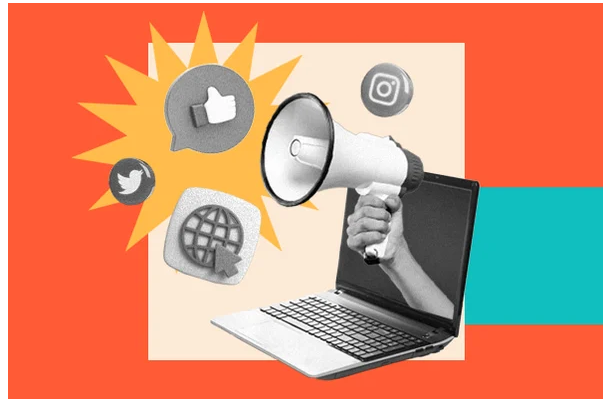Bhubaneswar: The election season is here and all political parties are extensively tapping social media and influencers – having sizeable fan base on various platforms – to push their messages through subtle campaigns to woo voters. Social media seems to have transformed the very nature of elections and campaigns, offering a place for news, discourse and election information as heatwave conditions make it difficult for parties, or candidates, to carryout effective outdoor canvassing.
Parties such as the Biju Janata Dal (BJD) and Bharatiya Janata Party (BJP) are busy tapping those with a sizeable fan base as an effective medium to reach out to millennial voters and push their messages. Recently, Social media influencers Rashmita Dash and Neha Panigrahi Dash – popular for their ‘Meals on Wheel Car Khana’- joined BJP and have started promoting the party on social media. Several Odia film personalities such as Babushaan Mohanty, Amlan Das, Swaraj Barik, Sailendra Samantaray, Bhoomika Dash, Supriya Nayak, Sivani Sangita, Devasis Patra, Jyoti Ranjan Nayak and Poonam Mishra recently called on BJD supremo Naveen Patnaik at the latter’s residence.
Emerging out of the meeting, some of them said that the discussions also included their involvement in the campaign for the BJD for the upcoming elections. Incidentally, Poonam and Saillendra have already started sharing videos about the BJD-led state government’s flagship initiatives like the Srimandir Parikrama project, 5T School Transformation, disaster management, sports development et al on various platforms which have reached thousands of their followers. Social media influencers are not far behind the matinee idols.
Many popular local social media influencers have started sharing political videos regularly. Joyeeta Roy, a Digital Marketing Consultant said, “Social media these days plays a significant role in political campaigning in India offering parties a direct way to engage with voters, share their platforms, and mobilize support. Parties can reach out to a broad audience quickly and engage directly with them, fostering a sense of connection and participation.” She said social media allows highly targeted messaging, reaching specific demographics with tailored content. “Compared to traditional media, social media campaigns can be more cost-effective, making it accessible to parties with smaller budgets,” she said. She went on to add, ”The influencers’ endorsement can lend credibility and reach to a party’s campaign. However, their influence also raises questions about transparency and authenticity, as audiences may be skeptical of sponsored content.”
Content creator and social media influencer Satyabrata Mohapatra who had created promotional videos for both Central and state government schemes, and also is currently promoting the state government’s different finished projects, said “The promotion of government projects which are beneficial for people is okay. But the problem occurs when some influencers just promote whatever the parties tell them to say without thinking. That might create problems and spread fake news, which is unethical” Devi Ranjan Tripathy, president, president, Biju Chhatra Janata Dal, said that social media wields tremendous power. “All parties understand this and use it for connecting with the audience. During elections, the government uses it for showcasing its projects and initiatives, while others showcase their plans if they come to power. But most importantly, it is the responsibility of voters to save themselves from getting manipulated and make their own decisions,” he added.
ARINDAM GANGULY, OP
